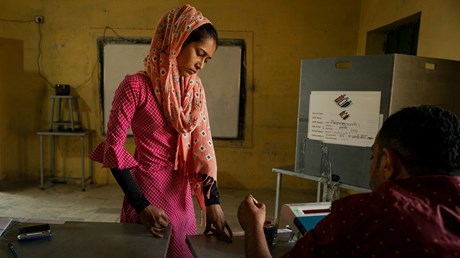Church leaders mobilized prayer for parliament and state elections, knowing the question wasn’t whether Hindu nationalists would win but the size of their mandate.
As India’s monumental elections finally come to an end this week, all eyes are on the extent of the mandate that will be handed to Prime Minister Narendra Modi and his Hindu nationalist party. Especially among the subcontinent’s estimated 28 million Christians, for whom the result will test whether religious freedom and secularism will be preserved in the world’s largest democracy.
Modi’s Bharatiya Janata Party (BJP) has been in power since 2014. During this time, monitoring groups have documented an alarming increase in incidents of violence, discrimination, and harassment targeting religious minorities–especially Christians and Muslims. Hindu extremist groups, emboldened by the BJP’s ideology of Hindu supremacy or “Hindutva,” have systematically perpetrated abuses ranging from physical assaults to false accusations of forced religious conversions, used as a pretext for persecution.
A massive survey by the Pew Research Center reported that in 2019, about 49 percent of Hindu voters in India backed the BJP, which secured the party a majority in the Lok Sabha, the lower house of India’s parliament, and granted Modi a second term as head of state.
Not who wins, but by how much
The 2024 Indian general election, which started polling votes on April 19, will conclude on June 1 after being conducted in seven staggered phases. The prolonged election process has drawn criticism from opposition parties alleging it favored the BJP’s “money power.” Meanwhile the Election Commission of India has come under criticism for “failing” its constitutional duty and is seen by observers as compromised.
At stake is the composition of the 543-seat Lok Sabha, which will …
